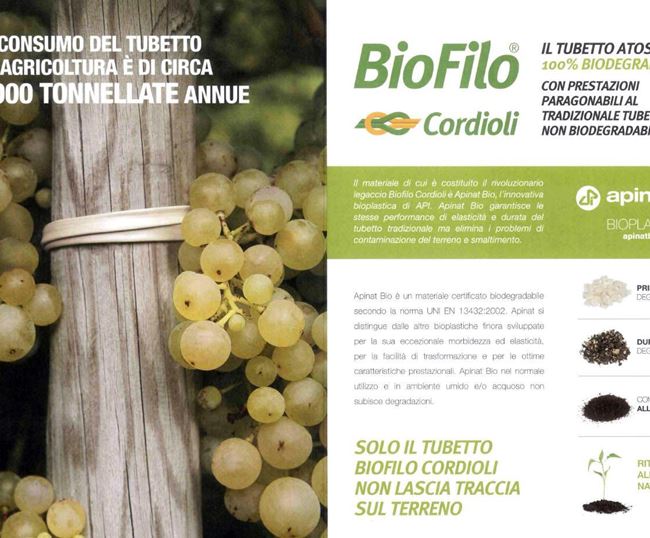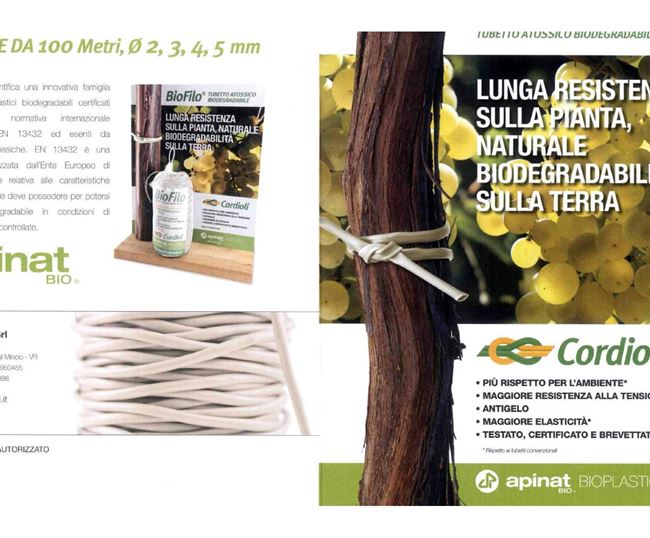
Apinat Bio is a certified biodegradable material according to UNI EN 13432: 2002. Apinat stands out from the other bioplastics developed so far for its exceptional softness and elasticity, for its ease of transformation and for its excellent performance characteristics.
Apinat Bio in normal use and in a humid and / or aqueous environment does not undergo degradation. The biodegradation process begins in the soil.
What are bioplastics?
Bioplastics represent a concrete response to the demand for low environmental impact products. The "European Bioplastic Association" defines bioplastics or polymers by dividing them into two sections:
- BIODEGRADABLE PLASTIC MATERIALS;
- PLASTIC MATERIALS COMING FROM RENEWABLE SOURCES OF NATURAL ORIGIN (EVEN NOT BIODEGRADABLE).
The advantages deriving from bioplastics.
The environmental and economic advantages are manifold:
- WASTE CONSUMPTION IS REDUCED CONSIDERABLY;
- BIODEGRADABLE PLASTIC CAN BE DISPOSED OF AS ORGANIC REFUSAL, RETURNS TO THE EARTH THROUGH BIODEGRADATION OR COMPOSTING PROCESSES, WITHOUT RELEASE OF POLLUTANTS;
- THE INCINENATION OF WASTE IS NOT NECESSARY, WITH A CONSEQUENT ENERGY SAVING AND REDUCTION OF CO2 EMISSIONS;
- THE DEPENDENCE ON OIL SOURCES DECREASES.

|
This website uses third party cookies | X |
 This site uses anonymous technical cookies to ensure navigation and third-party cookies to monitor traffic and to offer additional services such as viewing videos or messaging systems. Without third-party cookies some pages may not work properly. Third-party cookies can track your activity and will only be installed by clicking on the "Accept all cookies" button. You can change your selection at any time by clicking on the "Cookie" link on each page at the bottom left. By clicking on one of the two buttons you declare that you have read the privacy policy and to accept the conditions.
This site uses anonymous technical cookies to ensure navigation and third-party cookies to monitor traffic and to offer additional services such as viewing videos or messaging systems. Without third-party cookies some pages may not work properly. Third-party cookies can track your activity and will only be installed by clicking on the "Accept all cookies" button. You can change your selection at any time by clicking on the "Cookie" link on each page at the bottom left. By clicking on one of the two buttons you declare that you have read the privacy policy and to accept the conditions.
| |
|